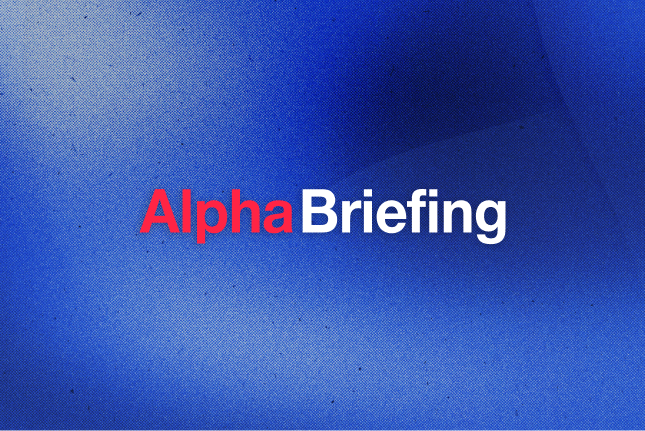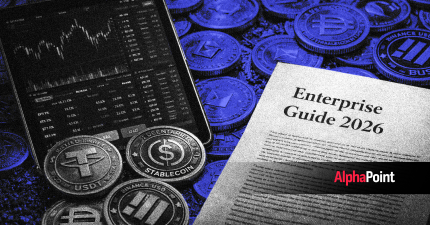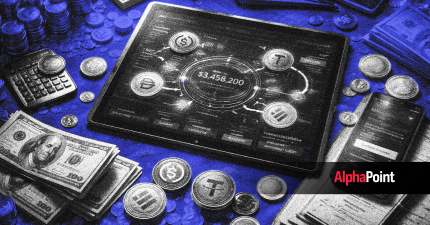Alpha Briefing – Institutional Insights (March 2025)

Markets React as White House Crypto Summit Approaches
The U.S. Crypto Strategic Reserve model is set to be revealed at the White House Crypto Summit, focusing on Bitcoin while other cryptocurrencies will be treated “positively, but differently”, according to Commerce Secretary Howard Lutnick. The summit, chaired by Crypto Czar David Sacks and Crypto Executive Director Bo Hines, will bring together industry leaders, including Michael Saylor, Brian Armstrong, Arjun Sethi, and Sergey Nazarov. President Trump previously announced that the U.S. would move forward on a crypto reserve including Bitcoin, Ethereum, Ripple, Solana, and Cardano—assets that initially surged 10%, 15%, 25%, 30%, and 70%, respectively, following the news. Most gains were erased by Monday 3/3, with major uncertainties regarding how it would be funded and implemented, with Federal Reserve and Treasury involvement likely requiring new Congressional legislation.
In the days leading up to the White House Crypto Summit, World Liberty Financial, the decentralized finance venture linked to President Donald Trump, has significantly expanded its cryptocurrency holdings. On-chain analysis revealed that the entity acquired over $25 million in crypto assets, including $10 million in ether (ETH), $10 million in Wrapped Bitcoin (WBTC), and $1.5 million in MOVE, the native token of the Movement Network. The purchases, confirmed by blockchain analytics firms Nansen and Arkham Intelligence, resulted in World Liberty Financial’s Ethereum holdings increasing from 2,200 ETH on Monday to over 7,000 ETH by Thursday. Trump continues to prepare to meet with top cryptocurrency leaders to discuss the regulatory landscape and the potential establishment of a U.S. Strategic Crypto Reserve.
El Salvador Increases Bitcoin Holdings Despite IMF Oversight
El Salvador will not stop purchasing Bitcoin, according to President Nayib Bukele, despite its $1.4 billion agreement with the International Monetary Fund (IMF) to limit Bitcoin-related activities. Bukele reaffirmed his commitment to Bitcoin adoption, stating, “No, it’s not stopping,” in response to speculation about the IMF deal restricting further purchases. Last December, El Salvador agreed to scale back its government Bitcoin transactions in exchange for the IMF financing package, which totals over $3.5 billion, with an initial $113 million disbursement approved last month. As part of the deal, El Salvador’s Congress amended laws to make Bitcoin acceptance voluntary in the private sector rather than mandatory. However, the IMF maintains that the country’s Bitcoin reserves pose financial risks that have not yet materialized, and it has emphasized that future program commitments will limit the government’s involvement in Bitcoin-related economic activities.
In a move that appears to defy IMF expectations, El Salvador’s strategic reserve announced a new Bitcoin purchase, bringing its total holdings to 6,101.18 BTC, valued at over $535 million. This acquisition reinforces Bukele’s stance on continuing Bitcoin adoption, despite external pressure. The latest purchase comes amid broader discussions about the impact of El Salvador’s Bitcoin strategy on its financial stability, with critics arguing that reliance on Bitcoin could increase the country’s fiscal risks. JAN3 CEO Samson Mow questioned how the IMF agreement would affect future Bitcoin acquisitions, though Bukele has yet to directly address these concerns. Instead, he has received vocal support from industry figures like MicroStrategy’s Michael Saylor and crypto advocate Peter McCormack, both of whom have praised El Salvador’s unwavering Bitcoin commitment. As the IMF monitors the country’s adherence to its loan conditions, market participants remain watchful of how Bukele navigates the balance between economic reform and his Bitcoin-centric policies.
Tariffs and Dollar Strength Effect on Risk-on Assets
Current financial conditions are exerting significant influence on risk-on digital assets, like the expansion of the M2 money supply which includes cash, checking deposits, and easily convertible near-money assets. Historically, increases in the M2 supply have correlated with bullish trends in the crypto market, as heightened liquidity often drives investors toward higher-yielding assets like Bitcoin. A robust dollar can also dampen demand for cryptocurrencies, as investors gravitate toward the perceived safety and stability of the greenback. Recent market reactions to tariff announcements have bolstered the dollar’s value, leading to a decline in Bitcoin prices, with the U.S. Dollar Index surged to multi-week highs and coincided with Bitcoin slipping below $80,000.
The U.S. administration imposed a 25% tariff on approximately $100 billion worth of imports from Canada and Mexico, prompting Canada to announce a reciprocal 25% levy on U.S. goods, while Mexico plans to detail its countermeasures on Sunday. Additionally, a 10% duty was levied on Chinese imports, to which China responded with tariffs ranging from 10% to 15% on U.S. products. Markets reacted sharply to the ongoing trade dispute, with gold prices rising, equities selling off, and volatility spiking. By the afternoon, the S&P 500 and Nasdaq Composite had nearly erased all gains since Election Day, with the S&P 500 now down 1.2% year-to-date and the Nasdaq slipping more than 5% since the beginning of the year. Meanwhile, the VIX, Wall Street’s fear gauge, surged above 26, reaching its highest level in 2025.
Stablecoins Strengthen U.S. Economic Influence
Payments giant Stripe, which processed $1.4 trillion in total volume in 2024, highlighted stablecoins as one of the most innovative advancements in the internet economy in a recent letter, and punctuated their stance with a $1.1 billion acquisition of Bridge, the largest crypto buyout to date. Stablecoins have four key advantages over traditional money: cheaper and faster transactions, global accessibility, and programmability. Stablecoins are already seeing real-world adoption, with more than 40 million active wallets and transaction volumes doubling between Q4 2023 and Q4 2024. Their use cases extend from corporate treasury management and remittances to savings in inflation-prone economies and global payment solutions.
The majority of stablecoins are denominated in U.S. dollars, reinforcing the dollar’s dominance in global finance. Additionally, issuers like Tether and Circle are major buyers of U.S. government debt, with Tether alone holding $113 billion in Treasury exposure by the end of 2024, making it the 19th-largest Treasury bill holder if it were a nation-state. Stablecoins are seen as a more accessible version of eurodollars, enabling economic benefits for a broader range of participants.The Congressional Crypto Caucus, led by GOP House Majority Whip Tom Emmer and Congressman Ritchie Torres, aims to act as a bipartisan voting bloc for digital asset legislation, including the stablecoin-focused GENIUS Act and the “Keep Your Coins Act” protecting self-custody rights.The CFTC will also convene a CEO roundtable, focusing on the role of stablecoins as collateral in futures markets.
AlphaPoint Launches Spot Margin Trading Technology to Empower Exchanges
Neobank Innovation Can Drive Growth With Digital Assets
🚀 Follow AlphaPoint on LinkedIn and X


